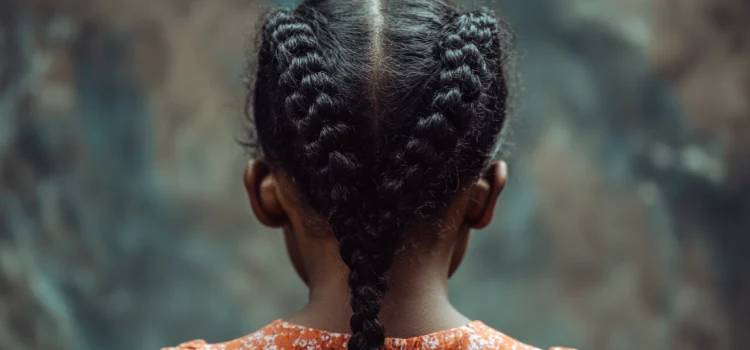

This article is an excerpt from the Shortform book guide to "Unbound" by Tarana Burke. Shortform has the world's best summaries and analyses of books you should be reading.
Like this article? Sign up for a free trial here.
What caused Tarana Burke to feel shame in her childhood? How can people’s comments on a child’s appearance affect their self-esteem?
Burke explains that in addition to the sexual abuse she suffered as a child, two other major forces influenced her strong sense of shame. Strangers’ comments on her appearance and her mother’s humiliating punishments severely impacted how Burke thought of herself when she was young.
Continue reading to learn more about these causes of childhood shame in Burke’s life.
Other Sources of Burke’s Shame
The first cause of childhood shame was that, by the age of 12, she believed she was ugly due to strangers’ unkind stares and comments about her appearance. Burke explains that the notion that she’s ugly is rooted in anti-Black beauty standards—she describes herself as having a large nose, full lips, and dark skin, features that are often stigmatized. She was raised to love being Black, but the callous comments she received still took a toll on her. She didn’t just believe that she was ugly—she believed that because she was ugly, she deserved cruel treatment.
(Shortform note: Studies suggest that being exposed to anti-Black beauty standards (which define European features as most beautiful) can lead Black girls to internalize negative messages about their appearance, which can in turn lead them to develop low self-esteem by age 10. Low self-esteem can have profoundly negative consequences, ranging from the inability to set healthy boundaries with others to the tendency to engage in self-harm. In Burke’s case, it made her feel that she deserved cruel treatment—experts say this kind of rationalization is common because it affirms the belief we tend to have that the world is orderly and just. Low self-esteem can also prime people to be more accepting of cruel treatment in the future.)
The second force that contributed to Burke’s pervasive feelings of shame was her mother’s tendency to yell at and humiliate her for minor infractions. For example, as a child, Burke once wondered what dish soap tasted like and touched a used dishrag to her tongue to find out. Her mother saw her, became furious, and berated her by suggesting she was a disgusting dishrag.
Later, when Burke had consensual sex for the first time as a teenager, her mother found out about it by reading her diary and responded in an angry, judgmental way, which made Burke feel ashamed. She also forced Burke to see a gynecologist and get tested for sexually transmitted infections, which was painful and retraumatizing. Burke says that by treating her this way, her mother confirmed her belief that she was inherently flawed and unworthy of love.
| How Shame Affects Children Parents sometimes resort to shaming their children as a form of discipline, but shame researcher Brené Brown (Daring Greatly) argues that since shame makes children feel unlovable, it’s traumatizing—and it can stop them from living wholeheartedly in adulthood. Other experts note that when parents instill sexual shame in their children, as Burke’s mother did by responding negatively to her teenage experimentation, they set their children up for sexual difficulties in adulthood. Similarly, gynecological trauma of the kind Burke’s mother forced her to endure can cause avoidance behaviors that lead to poorer reproductive health down the line. Rather than risk these outcomes, experts recommend that parents ditch shaming behaviors and talk openly and honestly about sexual health. |

———End of Preview———
Like what you just read? Read the rest of the world's best book summary and analysis of Tarana Burke's "Unbound" at Shortform.
Here's what you'll find in our full Unbound summary:
- The origin of the viral phrase “me too”
- What Tarana Burke did to heal from the experience of childhood sexual abuse
- The story of the #MeToo movement






